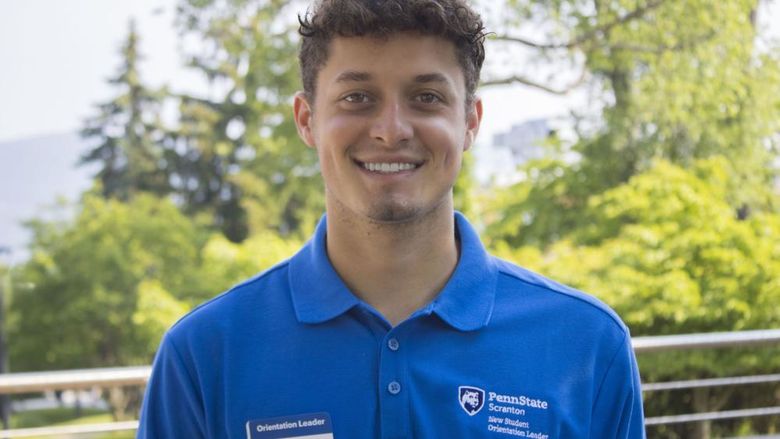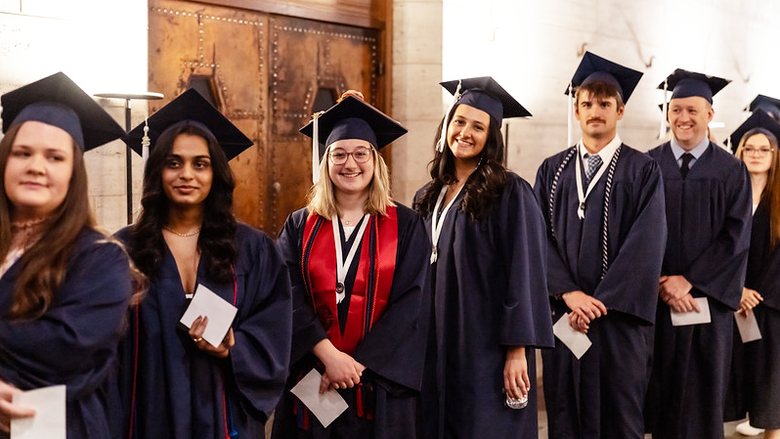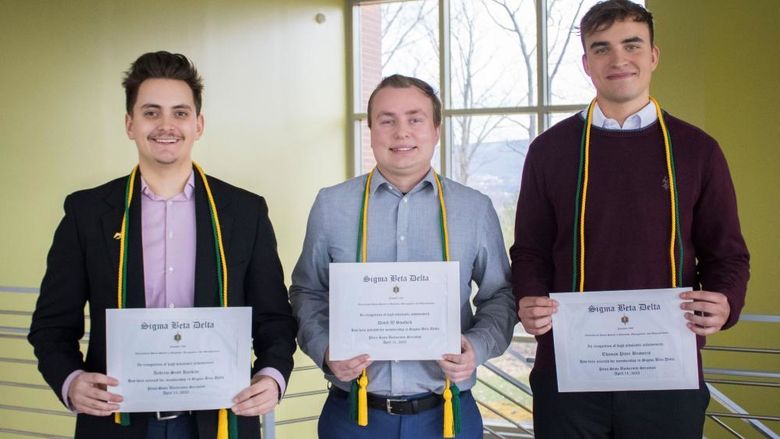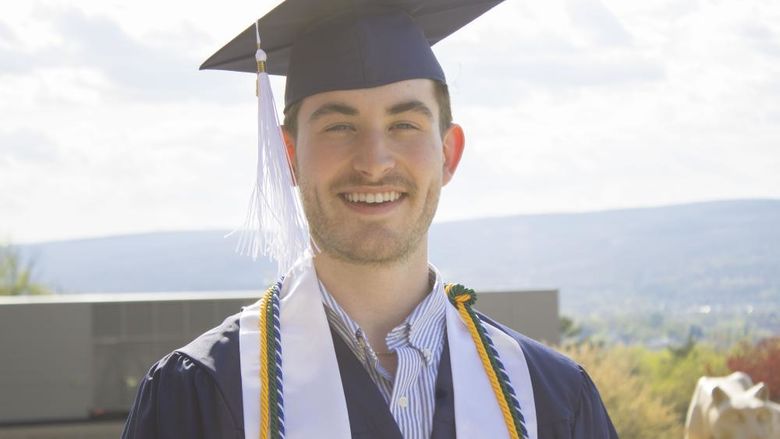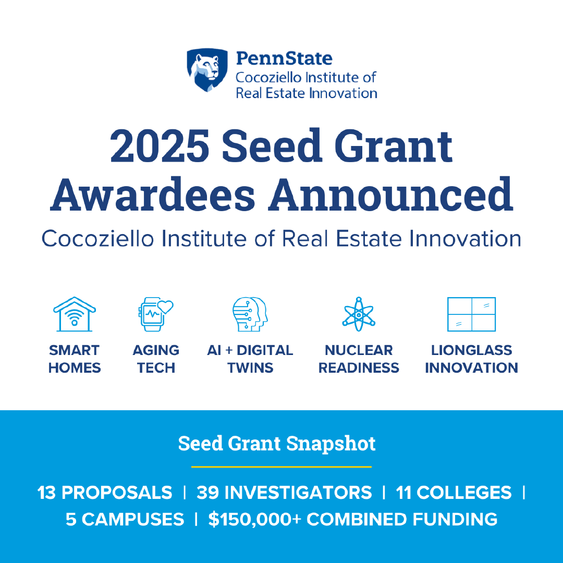
From smart homes and digital twins to sustainable building materials, Penn State researchers are tackling the future of real estate.
The Cocoziello Institute of Real Estate Innovation has awarded seed grants to five interdisciplinary teams focused on housing, sustainability, aging in place, and more.
UNIVERSITY PARK, Pa. — Penn State’s Cocoziello Institute of Real Estate Innovation has awarded seed grants to five interdisciplinary research projects. These grants support collaborative projects led by Penn State faculty who aim to generate innovative solutions to complex challenges in real estate and the built environment.
Now in its second year, the seed grant program provides 12 months of funding to teams composed of faculty from multiple academic colleges and campuses. The initiative encourages bold, cross-disciplinary research with direct relevance to real estate practice and impact across industry, policy and society.
"These seed grants exemplify the transformative power of interdisciplinary collaboration," said Scarlett Miller, director of the Cocoziello Institute of Real Estate Innovation. "By investing in research that bridges multiple disciplines, we are not only advancing the future of the real estate industry but also fostering enduring partnerships across Penn State. This kind of bold, cross-disciplinary thinking is essential for creating a more resilient, inclusive and sustainable built environment."
This year’s competition drew 13 proposals from 39 researchers across 11 academic colleges and five campuses. The Cocoziello Institute awarded more than $100,000 in seed funding, with additional support in the amount of $37,500 from Penn State Harrisburg and $10,000 of in-kind technical assistance from the Center for Immersive Experiences.
“These seed grants are catalyzing research that brings together engineering, architecture, design, data science and social sciences to solve the toughest problems facing real estate today,” said Jennifer K. Wagner, associate director of the Cocoziello Institute of Real Estate Innovation. “They represent the kind of collaborative, high-impact work that defines the Cocoziello Institute’s mission.”
The selected projects address topics ranging from climate-resilient housing and smart home systems for aging adults to artificial intelligence (AI)-powered digital twins and next-generation architectural glass. All projects align with the institute’s core focus areas, including next-generation building materials, healthy and affordable housing, and the use of technology to improve sustainability and resilience in the built environment.
“Community-centric design of smart amphibious residential buildings for strengthening flood resilience and the SUD recovery ecosystem in the Appalachian region” — This project team will co-design amphibious, modular housing tailored to Appalachian communities recovering from climate-induced flooding and substance use disorder. The project draws on expertise in architecture, rural sociology, energy systems and environmental engineering to support both disaster resilience and recovery ecosystems. This project is co-funded by Penn State Harrisburg, with key focus areas in healthy and affordable housing; and risk planning and mitigation.
“Penn State Harrisburg is pleased to partner with the Cocoziello Institute to support research that offers practical, community-driven solutions to complex housing and infrastructure challenges,” said Sherri Kermanshachi, vice chancellor for research and outreach at Penn State Harrisburg. “These types of collaborations empower faculty and communities alike.”
- Principal investigator: Mariantonieta Gutierrez Soto, associate professor of engineering design, Penn State University Park
- Co-principal investigators:
- Kristina Brant, assistant professor of rural sociology, Penn State University Park
- Lisa Iulo, professor of architecture, Penn State University Park
- Zhen Lei, professor of energy and environmental economics, Penn State University Park
-
Daniel Whisler, associate professor of engineering design and innovation, Penn State University Park
-
Shirley E. Clark, professor of environmental engineering, Penn State Harrisburg
-
James Mutunga, assistant professor of biology, Penn State Harrisburg
-
Truong Tran, assistant professor of computer science, Penn State Harrisburg
- Community partners:
- Natasha Stout, assistant director, Religious Coalition for Community Renewal (RCCR)
- Kevin Jones, executive director RCCR
- Nicole Intagliata, vice president of programs, Fahe
- Angela Stephens, partnerships and programs manager, Fahe
- Industry partner:
-
John Thompson, Chuck Consulting LLC
-
“Integrated Health-Monitoring Smart Homes for Aging in Place” — This project will develop an innovative smart home prototype integrating non-invasive health-monitoring tools, AI and virtual reality. The system is designed to support elderly adults living independently by enhancing safety, privacy and well-being. Co-funded by Penn State Harrisburg, this project focuses on the key areas of smart and connected homes; and health-centered housing design.
“This collaboration illustrates the strength of cross-campus partnerships in addressing issues like aging in place,” said Alicia Wondoloski, director of research development and administration at Penn State Harrisburg. “We’re proud to support research that has the potential to improve lives and inform policy at multiple levels.”
- Principal investigator: Dhananjay Singh, teaching professor of information sciences and technology, Penn State University Park
- Co-principal investigator: Sofia M. Vidalis, professor of civil engineering, Penn State Harrisburg
“DECODE: Digital twin Environments for COmprehensive Decarbonization Evaluation of the urban and rural real estate” — This project will use AI and sensor-enabled digital twins to assess climate risk and decarbonization potential across real estate assets in both urban and rural environments. The team will pilot its framework in downtown State College. This project, which was co-sponsored by the Center for Immersive Experiences, will focus on the key areas of digital twins, real estate technologies, and environmental sustainability.
“Immersive technologies like digital twins are revolutionizing how we design and manage the built environment,” said Jessica Menold, director of the Center for Immersive Experiences. “This collaboration will help us understand — and mitigate — the environmental risks facing our communities through powerful simulation tools.”
- Principal investigator: Rahman Azari, associate professor of architecture, Penn State University Park
- Co-principal investigators:
- Katie Fitzsimons, assistant professor of mechanical engineering, Penn State University Park
- Tamy Guimaraes, assistant professor of mechanical engineering, Penn State University Park
- Julian Wang, associate professor of architectural engineering, Penn State University Park
- Lisa Iulo, professor of architecture, Penn State University Park
“Your next-door neighbor, nuclear reactor: real estate and societal readiness” — This study explores how living near nuclear energy infrastructure affects housing markets, safety perceptions and community development. The project will assess impacts based on reactor type, demographic context and proximity to planned nuclear sites. This project will focus on the key areas of Environmental, Social and Governance considerations.
- Principal investigator: Nonna Sorokina, assistant professor of business, Penn State Scranton
-
Co-principal investigator: Brent Ambrose, Jason and Julie Borrelli Faculty Chair in Real Estate, Penn State University Park
“LionGlass: Building a Sustainable Future for Architectural Glazing” — A continuation of a 2024-funded project, this effort will optimize the performance and commercial readiness of LionGlass, a low-carbon alternative to conventional architectural glass. The team will evaluate thermal performance, durability and energy savings potential using real-world testing methods. Key focus areas include next-generation building materials; and future energy landscape.
- Principal investigator: John Mauro, Dorothy Pate Enright Professor of Materials Science and Engineering, Penn State University Park
- Co-principal investigator: Julian Wang, associate professor of architectural engineering, Penn State University Park
About the Cocoziello Institute of Real Estate Innovation
The Penn State Cocoziello Institute of Real Estate Innovation is dedicated to advancing research and collaboration across disciplines to address the challenges facing the real estate industry. Through innovative programs and partnerships, the institute aims to develop solutions that will positively impact the built environment and promote sustainable practices.
Visit the Cocoziello Institute of Real Estate Innovation website to learn more.
